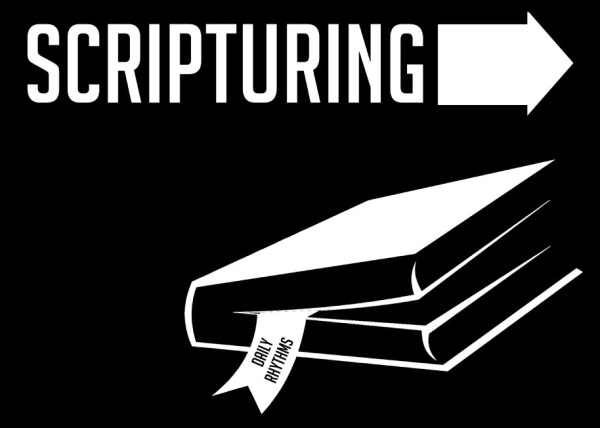In light of our current teaching emphasis on “scripturing” and priorities and pondering “is sabbath a priority?,” I asked my dad to pen some thoughts about what Jesus thought about and taught about the Sabbath. Here is what he wrote. I love this guy!!! So grateful for my pop. :-)
____________________
Jesus and the Sabbath
by Dr. Jimmy Dukes
How did Jesus react to the Sabbath? He was a Jew who honored the Law, but how was his reaction to the Sabbath different from the reaction of the Jewish leaders of his day? Mark gives us a great contrast between Jesus’ approach to the Sabbath Law and the Jewish leaders’ approach in two incidents from the ministry of Jesus in Mark 2:23-3:5.
Two simple stories. A walk through a grain field and a healing of a man in need.
The first involves Jesus and his disciples walking through a grain field on a Sabbath. Jesus said nothing here until after the Jewish leaders had spoken in criticism of the disciples. The disciples were doing nothing wrong in spite of the accusation of the Jewish leaders that they were acting unlawfully. They interpreted the plucking of grain and the rubbing of it to remove the husks as harvesting and threshing. The disciples’ action was allowed under the law, but was not generally acceptable in the tradition of the elders on the Sabbath. Jesus was not criticizing the law. He did not come to destroy the law, but to fulfill it. He reinterpreted the Law in the light of who he was and in the light of his relationship to the Father, the Giver of the Sabbath.
So what was the problem? The Jewish leaders had become so focused on the law itself as something to be revered and protected that they ignored the Person who was to be revered and protected. God had made clear from the Garden of Eden that his desire was to have a relationship with his people. All of the Law, including the Sabbath law was given in the context of that relationship. He gave it to make life better for his people. That is why Jesus made the key statement in 2:27-28:
“Jesus said to them, The Sabbath was made for man, and not man for the Sabbath. So the Son of Man is Lord even of the Sabbath.”
With his response to the criticism of the Jewish leaders and the healing of the man on the Sabbath, Jesus was teaching three things. First, he was making his Lordship clear. That authority extends to the Sabbath, which was given by God to his people to strengthen their relationship and to make their lives more abundant and productive. Second, Jesus was teaching that men cannot understand their relationship to the law properly if they do not understand their relation to the Giver of the Law. Third, he was teaching that man does not owe blind obedience to the law but he does owe obedience to the Lord of the Sabbath to live out the relationship with the Lord and with his people.
Jesus used two examples to confirm his relational approach to the law. The first was David. He was fleeing with some of his men and they were hungry. They went to the priest and took away the Bread of the Presence, which legally only the priests could eat. David took the bread and shared it with his hungry men. The moral is clear. Meeting the genuine needs of people is more important than legal principles.
The second example is even clearer (3:1-5). Jesus, in the course of his ministry encountered a man with a withered hand. Coincidentally the encounter was on the Sabbath. The man could have waited another day to be healed, but Jesus was there on that day. He healed the man to demonstrate the importance of taking the opportunity to meet a need when it presented itself and to teach the principle that ministry to people is more important than legalistic rules. Here he affirmed his truth by contrasting a man in need and animals in need. (Man is more important than animals).
What can we learn?
A man so bound by tradition he ignores the needs of others is far off track from the purpose of God. If we have a relationship with the Giver of the Law we must demonstrate it as Jesus did by being obedient to the purpose of God. If tradition is more important than people, the purpose of God is violated. It always comes back to the purpose of God.
How are we working with Him to accomplish his purpose by meeting the needs he puts before us???
